The 15th Annual Postgraduate Research Conference 2023 will take place on Wednesday 29 November, and the call for abstracts is now open.
The conference is a great opportunity for postgraduate researchers to showcase and promote their research to the BU community whether they have just started or are approaching the end of their journey at BU.
Attending the conference is a great opportunity to engage and network with the postgraduate research community and find out more about the exciting and fascinating research that is happening across BU.
Abstracts are invited from postgraduate researchers to present via oral or poster presentation.
For full details on how to apply please visit the Doctoral College Conference Brightspace.
Closing date 09:00 Monday 23 October 2023.
Registration to attend will open in November, all members of BU are welcome!
For any questions, please email pgconference@bournemouth.ac.uk and a member of the Doctoral College conference team will get back to you.
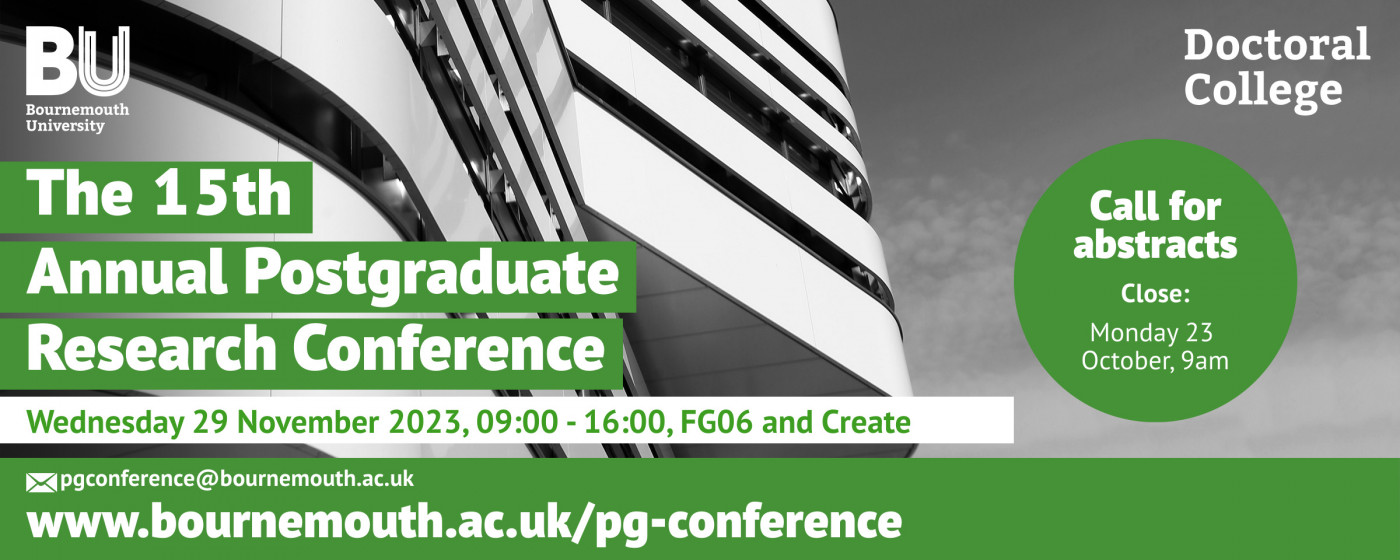


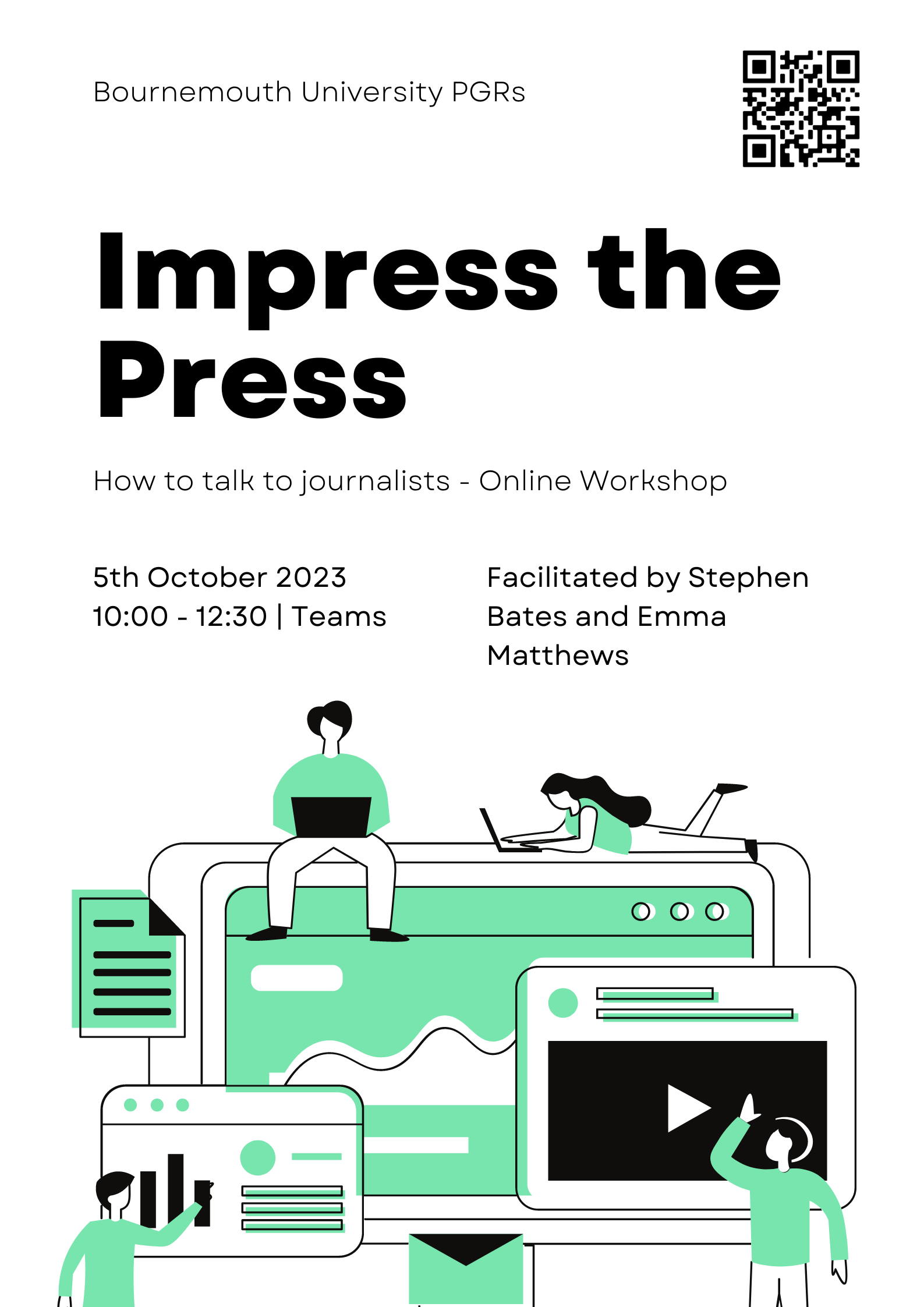
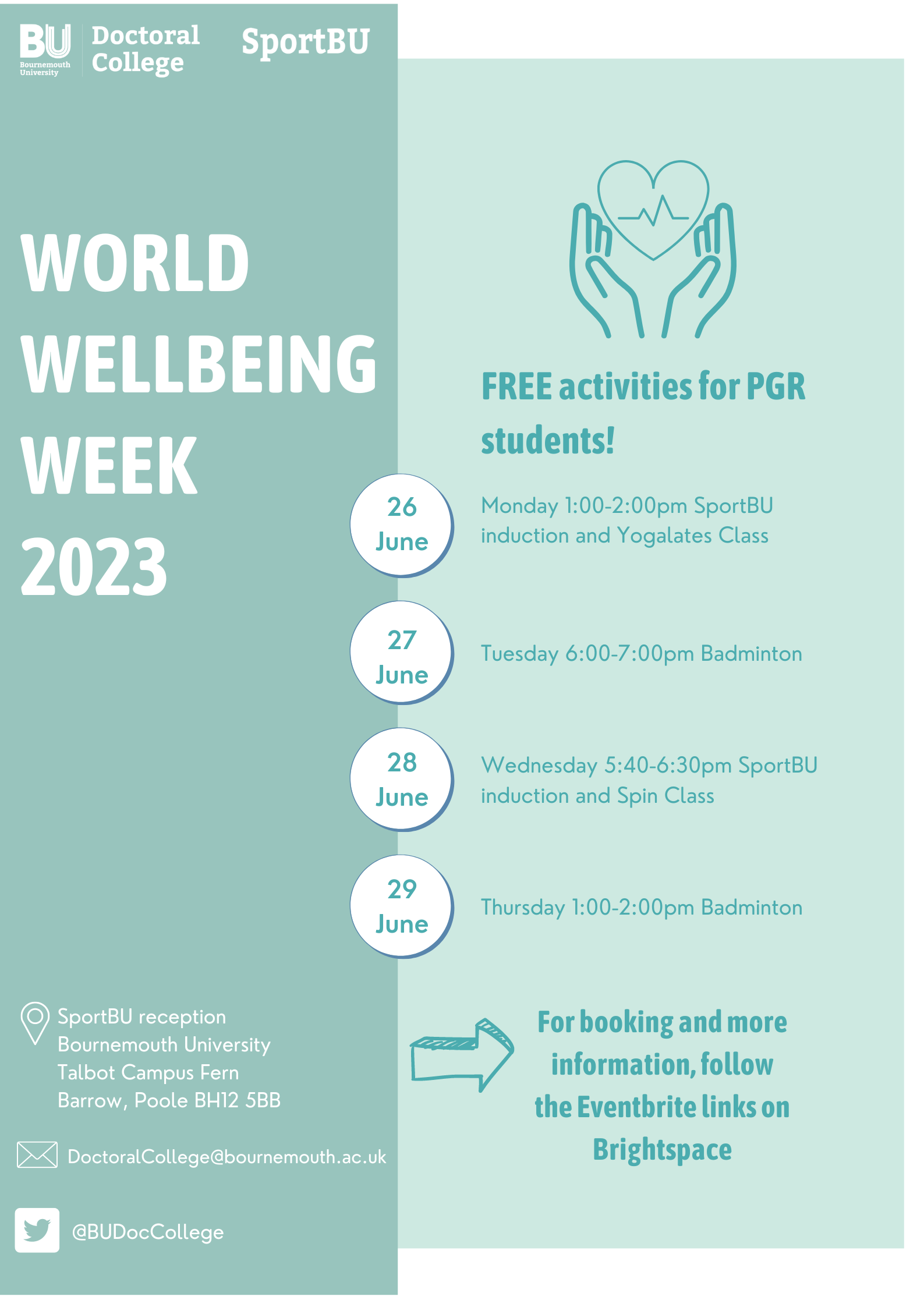

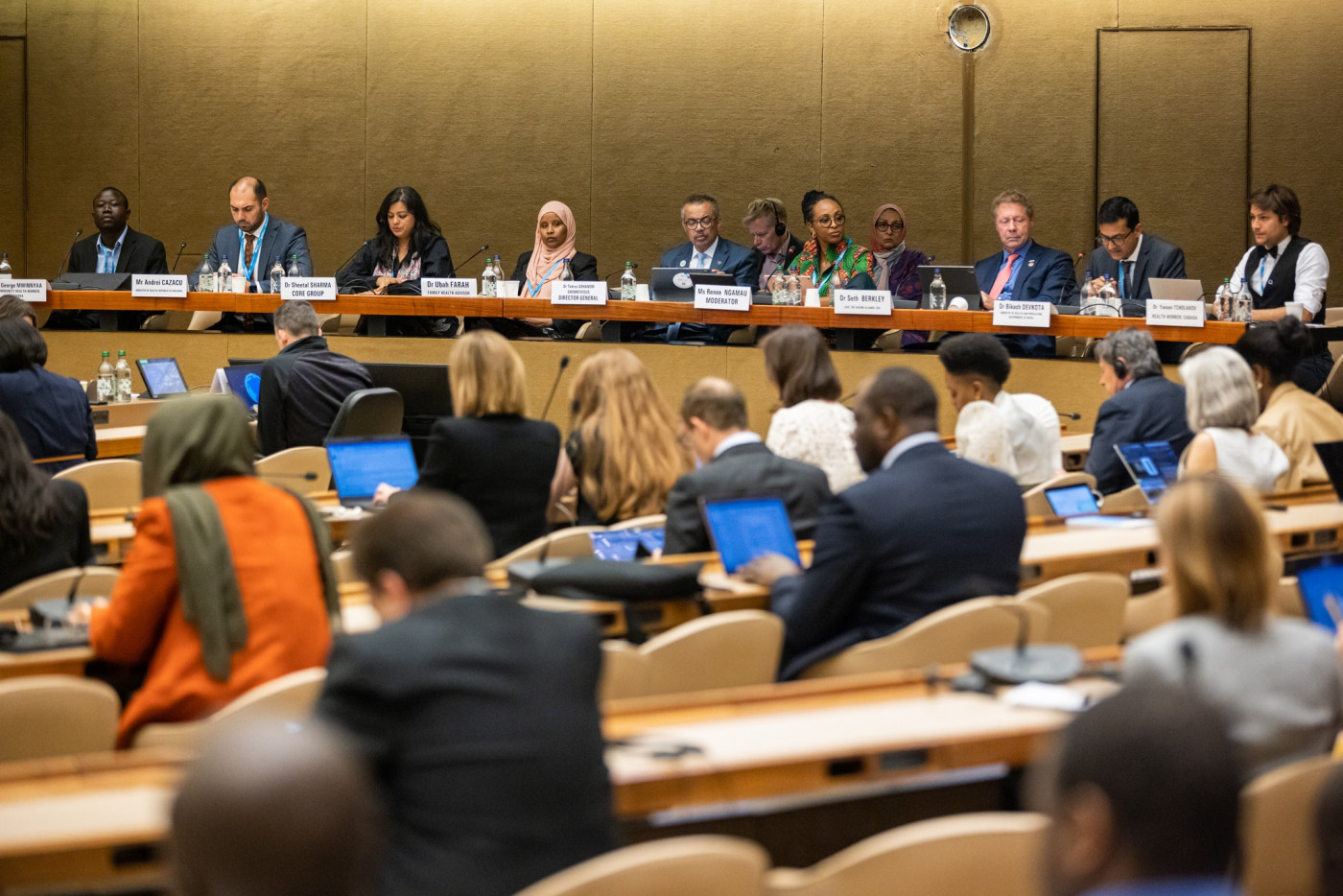
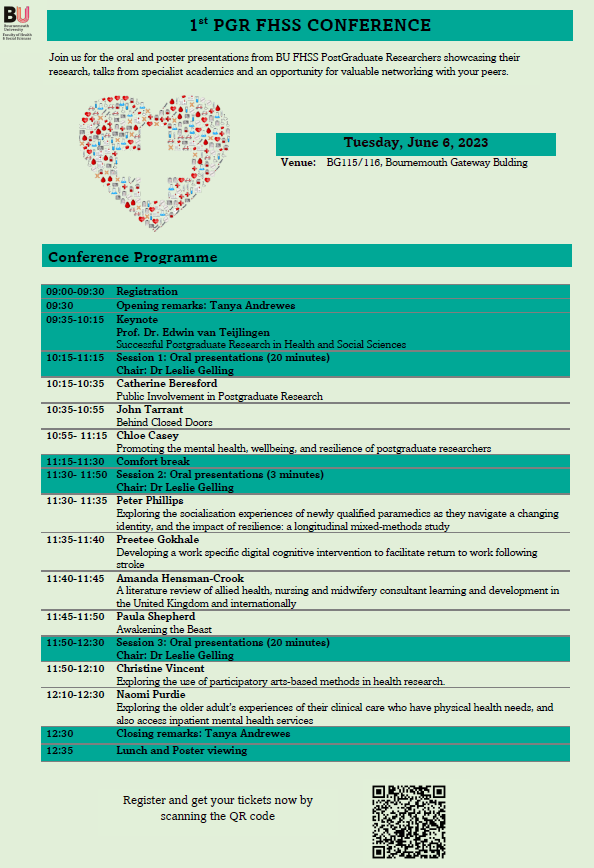
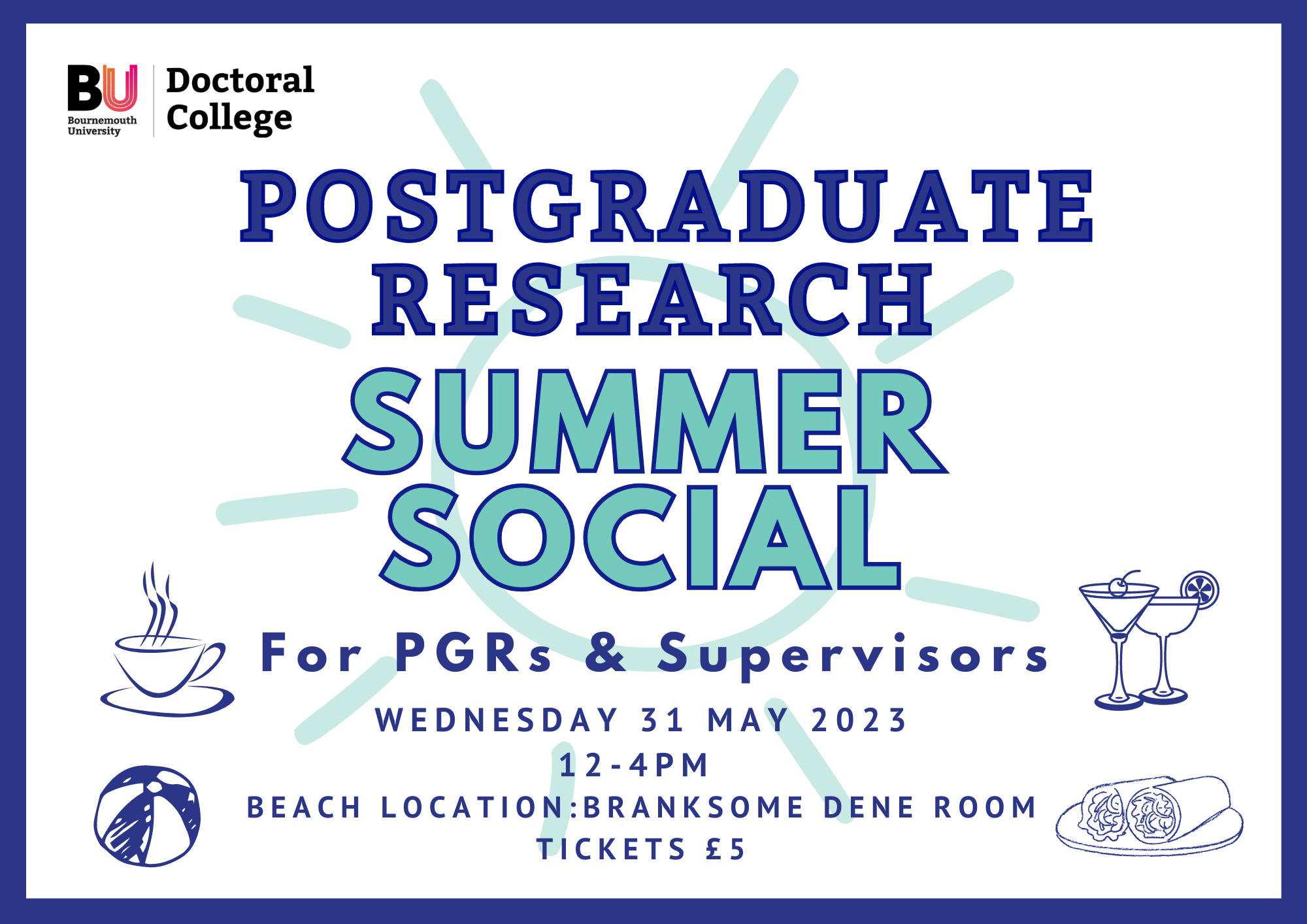











 Dr. Ashraf cited on ‘Modest Fashion’ in The Guardian
Dr. Ashraf cited on ‘Modest Fashion’ in The Guardian NIHR-funded research launches website
NIHR-funded research launches website Academics write for newspaper in Nepal
Academics write for newspaper in Nepal New paper published on disability in women & girls
New paper published on disability in women & girls Global Consortium for Public Health Research 2025
Global Consortium for Public Health Research 2025 MSCA Postdoctoral Fellowships 2025 Call
MSCA Postdoctoral Fellowships 2025 Call ERC Advanced Grant 2025 Webinar
ERC Advanced Grant 2025 Webinar Horizon Europe Work Programme 2025 Published
Horizon Europe Work Programme 2025 Published Horizon Europe 2025 Work Programme pre-Published
Horizon Europe 2025 Work Programme pre-Published Update on UKRO services
Update on UKRO services European research project exploring use of ‘virtual twins’ to better manage metabolic associated fatty liver disease
European research project exploring use of ‘virtual twins’ to better manage metabolic associated fatty liver disease